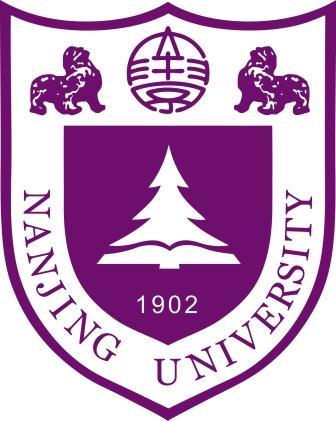Lu Han @ LAMDA, NJU-CS
 |
韩 路 |
Currently I am a Ph.D. candidate of School of Artificial Intelligence in Nanjing University and a member of LAMDA Group( LAMDA Publications), led by professor Zhi-Hua Zhou.
Supervisor
Associate professor De-Chuan Zhan.
Biography
I received my B.Sc. degree from Wuhan University in June 2019. In the same year, I was admitted to study for a M.Sc. degree in Nanjing University without entrance examination.
I received my M.Sc. degree in School of Artificial Intelligence from Nanjing University in June 2022. In the same year, I was admitted to study for a Ph.D. degree in School of Artificial Intelligence from Nanjing University, which is also in the LAMDA Group led by Prof. Zhi-Hua Zhou., under the supervision of Prof. De-Chuan Zhan and Han-Jia Ye.Research Interests
Lu mainly focuses on machine learning, especially:
Meta-Learning
Meta-Learning, or learning to learn, aims at extracting meta-knowledge from previous tasks, and reuse them in new tasks. It can be applied to few-shot learning, federated learning, hyper-parameter setting, and other related areas.
Contrastive Learning
Contrastive Learning methods maximize the agreement between positive pairs and minimize the agreement between negative pairs. It has been the one of the most popular methods in self-supervised learning, representation learning and is the fundamental technique of many pre-trained models like CLIP.
Multivariate Time Series Forecasting
-
Multivariate time series forecasting involves predicting future values of multiple interdependent variables over time. Unlike univariate time series forecasting, which deals with predicting a single variable based on its past values, multivariate forecasting takes into account multiple variables that influence each other..
Publications
Journal Articles
Lu Han, Han-Jia Ye, De-Chuan Zhan. The Capacity and Robustness Trade-off: Revisiting the Channel Independent Strategy for Multivariate Time Series Forecasting. IEEE Transactions on Knowledge and Data Engineering (TKDE), 2024. (CCF-A) [ArXiv] [IEEE Xplore] [code]
Lu Han, Han-Jia Ye, De-Chuan Zhan. On Pseudo-Labeling for Class-Mismatch Semi-Supervised Learning. Transactions on Machine Learning Research (TMLR), 2022. [ArXiv] [OpenReview]
Han-Jia Ye, Lu Han, De-Chuan Zhan. Revisiting Unsupervised Meta-Learning via the Characteristics of Few-Shot Tasks. IEEE Transactions on Pattern Analysis and Machine Intelligence (TPAMI), 2022. (CCF-A) [ArXiv] [IEEE Xplore] [code] (学生一作)
Conference Proceedings
Xu-Yang Chen*,Lu Han*, Han-Jia Ye, De-Chuan Zhan. MIETT: Multi-Instance Encrypted Traffic Transformer for Encrypted Traffic Classification. Proceedings of the AAAI Conference on Artificial Intelligence (AAAI), 2025. (CCF-A) [ArXiv] [Proceeding] [code]
Lu Han*, Xu-Yang Chen*, Han-Jia Ye, De-Chuan Zhan. SOFTS: Efficient Multivariate Time Series Forecasting with Series-Core Fusion. Annual Conference on Neural Information Processing Systems (NeurIPS), 2024. (CCF-A) [ArXiv] [OpenReview] [code]
Lu Han, Han-Jia Ye, De-Chuan Zhan. SIN: Selective and Interpretable Normalization for Long-Term Time Series Forecasting. International Conference on Machine Learning (ICML), 2024. (CCF-A) [OpenReview]
Lu Han, Han-Jia Ye, De-Chuan Zhan. Augmentation Component Analysis: Modeling Similarity via the Augmentation Overlaps. International Conference on Learning Representations (ICLR), 2023. (Top AI Conference) [ArXiv] [OpenReview] [code]
Lan Li, Bowen Tao, Lu Han, Han-Jia Ye, De-Chuan Zhan. Twice Class Bias Correction for Imbalanced Semi-supervised Learning. Proceedings of the AAAI Conference on Artificial Intelligence (AAAI), 2024. (CCF-A) [Proceeding]
Preprint
Lu Han*, Xu-Yang Chen*, Han-Jia Ye, De-Chuan Zhan. Learning Robust Precipitation Forecaster by Temporal Frame Interpolation. arXiv. [ArXiv] [code]
Selected Honors
- Weather4cast Competition@NeurIPS 2023, 1st prize in the TRANSFER LEARNING Leaderboard, 2nd prize in the NOWCASTING Leaderboard, 3rd prize in the CORE Leaderboard,
- HUAWEI Fellowship for Outstanding Contribution, 2021
- 南京大学优秀研究生标兵,2024
- HUAWEI Scholarship, 2024
- First-Class Graduate student talent scholarship, 2022
- First-Class Academic Scholarship of Nanjing University for Ph.D., 2022
- First-Class Academic Scholarship of Nanjing University for M.Sc., 2019 2020 2021
- Citi Cup Innovation and Application Contest Top 5 in China, Chong'qin, 2017
Internship
-
2018.5~2018.9: Technology Engineering Group, Tencent (技术工程事业群,腾讯)
Software Engineer
Developing Deep Neural Network Compilers for FPGAs.
Professional Services
- Conference PC member/reviewer: ECAI 2020, IJCAI-PRICAI 2020, CVPR 2021, KDD 2021, CCML 2021, CVPR 2022, PAKDD 2022, UAI 2022, ECCV 2022, KDD 2022, CVPR 2023, SDM 2023, AISTATS 2023
- Journal reviewer: IEEE Transactions on Pattern Analysis and Machine Intelligence (IEEE TPAMI), IEEE Transactions on Neural Networks and Learning Systems (IEEE TNNLS), IEEE Transactions on Intelligent Systems and Technology (TIST), IEEE Transactions on Circuits and Systems for Video Technology (TCSVT), SCIENTIA SINICA Informationis, Chinese Journal of Electronics (CJE)
- Student volunteer: MLA 2019, MLA 2020
Teaching Assistant
- 智能系统设计与应用(詹德川教授;2022年春季)
- 时间序列分析(叶翰嘉讲师;2022年秋季)
Correspondence
Email:
hanlu@lamda.nju.edu.cn, hanlu198004@163.com
Office:
Room A201, Shaoyifu Building, Xianlin Campus of Nanjing University
Address:
Lu Han, National Key Laboratory for Novel Software Technology, Nanjing University, Xianlin Campus Mailbox 603, 163 Xianlin Avenue, Qixia District, Nanjing 210023, China
(南京市栖霞区仙林大道163号, 南京大学仙林校区603信箱, 软件新技术国家重点实验室, 210023.)

